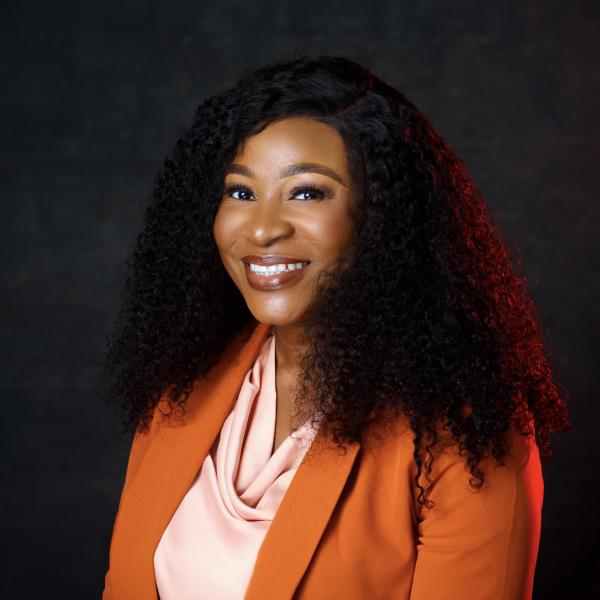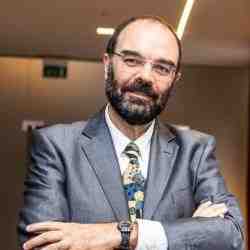Introduction
Funke is actively working to transform the Nigerian prison experience from a punitive to a restorative one.
The New Idea
Funke is transforming the entire prison experience by engaging directly with inmates, offering legal aid, providing psychosocial support, and introducing innovative income-generating initiatives within the prison walls. The focus is on changing the mindset of prisoners, particularly those in poverty, by creating a supportive environment for their reintegration into society, thereby preventing secondary offences. Funke is also actively working with officials in the prison system, with whom she provides tools and resources that enable them to serve the inmates. Working with the Correctional Service , Funke is transforming the system to adopt a restorative approach rather than a punitive one. Her work also involves collaborating with state governments to enact prison laws that inculcate restorative justice principles, legal support for inmates, and her inside-out program. Finally, Funke is working with the media to change the perception of society towards former inmates to help reintegrate them into society upon release while preventing repeat offences.
The Problem
According to the Nigerian Correctional Service (NCS), Nigeria has 240 prisons that house a little above 77,000 inmates. These prisons were originally designed to accommodate approximately 50,000 inmates, but due to government corruption, persistent mismanagement, and the failure of the court system to prosecute and dispense justice quickly, the prisons are perennially overcrowded, leading to more crime within the prisons as well as a high rate of repeat offences. Interestingly, a study conducted by the Nigerian Correctional Service shows that the repeat-offence rate for former inmates in Nigeria is estimated to be around 76%, i.e., nearly 4 out of 5 former inmates return to crime. This means that a considerable number of individuals who have been incarcerated end up reoffending and returning to prison. The study further highlights that the rates tend to be higher among young offenders and individuals with limited educational and vocational opportunities.
Certain factors that contribute to the inmates returning to criminal activity soon after release include a lack of legal and psychosocial support for inmates, which hinders their ability to prepare for life outside prison. Secondly, released inmates often struggle to find jobs due to limited vocational training and societal stigma. This lack of economic opportunity creates a strong pullback towards crime. Finally, media portrayal and societal attitudes towards former inmates can be harsh, making it difficult for them to find acceptance and rebuild their lives.
The Nigerian Correctional Service's 2020 Annual Report further acknowledges the scarcity of prison rehabilitation programs, which contributes to the high rate of repeat offences. Sadly, Nigeria lacks a comprehensive system to protect and prevent formerly incarcerated inmates from re-offending and returning to prison. This problem is caused by neglect on the part of the government which shows up in the chronic underfunding of the agency in charge of Nigeria’s prison – The Nigerian Correctional Services. The sad fallout of this neglect is then seen in the overcrowding of the prisons, low morale and lack of motivation on the part of correctional staff, poor living conditions within the prisons, increased violence and tension and limited educational, vocational and rehabilitation opportunities. Staff shortages, acute brain drain, and migration of young staff also contribute to the problem as older officers retire without replacements.
Furthermore, the media’s portrayal of former inmates has unfortunately had negative consequences that make it difficult for them to reintegrate back into society and thrive afterward. Due to a lack of awareness of the rights of former inmates, media houses routinely use the wrong terms to refer to former inmates, thus reinforcing the stigma. An example is the continued use of the terms “Nigerian Prisons” and “Prisoners” instead of “Nigerian Correctional Services” and “Inmates” respectively, even though the government has enacted laws in recent times that changed the terms to reflect a change of approach from punitive to restorative.
The Strategy
Funke’s holistic strategy involves providing legal support to inmates, creating economic opportunities for inmates through her Inside Out hubs, cooperating with government officials at different levels, starting with officers in the prisons and moving up to top government officials, and engaging the media to change society's perception of inmates, thereby creating opportunities for them to thrive in judgement-free environments.
In the area of providing legal support to inmates, Funke and her Hope Behind Bars team provide continuous legal support in the form of pro bono legal representation, pre-release, and parole hearings to reduce congestion in 12 prisons across Nigeria. Funke’s network of pro bono lawyers represent indigent inmates and use relevant law provisions to ensure that petty and simple cases are dealt with timeously. To date, Funke’s 200+ pro bono lawyers have logged over 1,000,000 hours providing legal advice and defending indigent inmates.
Backed by the need to create economic opportunities for inmates, Funke started a pilot project in a small prison facility, engaging female inmates in producing reusable face masks during the covid-19 pandemic. The success of this project inspired her to scale the initiative which led to the creation of inside-out centres in four prisons reaching 8,000 inmates. The inside out hubs equip women and young people who are finishing their time with the tools they need to succeed upon release. The hubs provide vocational and educational skills training, behavioural change support, income generation opportunities while incarcerated, and reintegration support in the form of resources and guidance to help inmates rebuild their lives outside. These Inside Out hubs operate in Abuja, Niger, Nasarawa and Kaduna states. Through the Inside Out hubs , Funke is also championing the “Adopt-an-Inmate” initiative which offers holistic support to inmates by having interested Nigerians volunteer to handhold the inmates who have passed through the Inside Out centres.
Funke’s strategic approach to collaboration with government entities is both insightful and impactful. By actively engaging with prison officers, she not only enhances their capabilities but also cultivates their support and endorsement for the programs benefiting inmates. As these officers become advocates, Funke’s team gains influential champions who amplify the positive impact of their work within correctional facilities. With the benefit of her legal background, Funke is taking advantage of the changes in government laws and working with relevant government agencies to include her restorative model in the new amendments to prison laws in Nigeria. Funke’s organisation provided the knowledge base for two key prison reform laws recently signed into effect by the government. The first is that the government changed the name of prison authority from Nigerian Prisons Service to National Correctional Service, reflecting the new direction from punitive to restorative justice. The second is that the federal government has created a distinction between federal prisons and state prisons, thereby granting states the autonomy and authority to run their own prisons. Interestingly, many of the states do not yet have the relevant laws to guide the operations of their state prisons, which has provided a good opportunity for Funke and her team to leverage their in-depth knowledge of the government laws and practices at the federal level to partner with the states to replicate and set up similar laws to guide their operations. Funke and her team organised a national stakeholders dialogue that brought together influential figures, including four State Prison Comptrollers, three Solicitor Generals, Members of the Federal Legislature, Professors (who were part of the think-tank on creating the national policy on state prisons), and other government actors, resulting in a policy document shared across states with the aim of determining the most suitable model to adopt for state-owned prisons.
In her work of engaging the media to create an enabling environment to reintegrate the prisoners and destigmatize them, Funke’s work and efforts extend beyond the prison walls to foster reintegration into society, preventing secondary offences and tackling the perception of inmates by society. She collaborates with multiple stakeholders, such as International Criminal Justice experts on her board, to secure funding from various sources like global citizens, Fund for Global Human Rights, and World Coalition Against Death Penalty to further highlight the plight of former inmates currently being stigmatised by society. So far, within the last two years, Funke has written more than 50 articles focusing on inmates’ rehabilitation, and prevention of repeat offending. To date, her articles have garnered over 400,000 impressions on social media and four major media appearances on global news outlets such as BBC, which has further increased society’s understanding of the issues Funke is tackling.
Funke is currently in 12 states and working on spreading to more states in Nigeria by leveraging her partnership with the Nigerian Bar Association and the International Federation of Women Lawyers.
The Person
Funke grew up in a family of eight , and she was often teased as being her father’s favourite. As a young child, her father suffered an unfair incarceration due to a defective justice system and he lost his job afterwards. This experience formed a major thrust to her wanting to become a lawyer to help people who lack the capacity to defend themselves against a system that can be easily manipulated by the rich to their benefit. During her studies at the Nigerian Law School, she joined the legal clinic to handle pro bono cases with other student lawyers who shared similar interests. From her experience, she witnessed first-hand through the eyes of clients she defended, the problem of the justice system, which was designed to punish offenders without paying much attention to rehabilitating them. Fulfilling her father’s dream of becoming a lawyer, she pursued her studies and dedicated her life to working with falsely imprisoned inmates and others who are imprisoned for non-violent crimes due to poverty.
After her training as a lawyer, Funke pursued her legal practice with zest, determined to make a difference in the litigation space. However, a personal tragedy in the form of the loss of her child due to medical negligence on the part of the government-owned hospital, and the absence of a proper legal framework to seek redress jolted her back to the reality of the plight of average citizens who do not have the same level of social mobility she has.
She started working to understand incarcerated inmates and their reasons for incarceration as well what opportunities waited for them after incarceration. To her shock, a major percentage of released inmates found their way back into prisons due to repeat offences. This got her rolling up her sleeves and registering the Hope Behind Bars Africa Initiative to address this multi-layered problem.
Funke’s organisation was established in 2018, with two offices in Abuja and Edo state and a committed team of 15 full-time and over 200 volunteer lawyers. The board includes international criminal justice experts and individuals with diverse experience relevant to the organisation's objectives. Funding has been secured from various sources, such as Global Citizens, Funds for Global Human Rights, and Cornell University.




